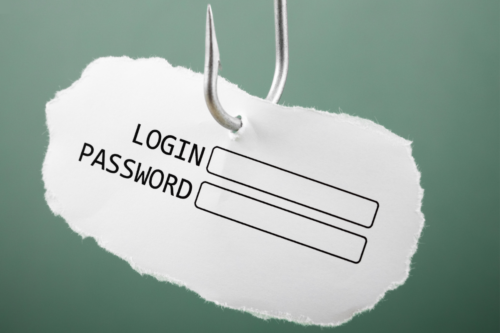Cybersecurity 101 Categories
What is WiFi certificate authentication?
WiFi certificate authentication, also known as WPA-Enterprise or 802.1X authentication, is a security method used to authenticate users or devices on a wireless network. This method is more secure than the common pre-shared key (PSK) authentication used in WPA-Personal or WPA2-Personal configurations.
Here’s a brief overview of how WiFi certificate authentication works:
- Authentication Server: A central authentication server (usually part of a RADIUS – Remote Authentication Dial-In User Service – server) is responsible for validating the credentials of users or devices attempting to connect to the WiFi network.
- Certificates: Instead of using a shared passphrase or key, each user or device is issued a unique digital certificate. These certificates are typically based on the X.509 standard and contain information such as the entity’s public key, identity, and other relevant details.
- Client Certificate: When a device tries to connect to the WiFi network, it presents its digital certificate to the authentication server. This certificate is often pre-installed on the device.
- Username and Password: In addition to presenting the certificate, users may also be required to enter a username and password. This adds an extra layer of security.
- Authentication: The authentication server verifies the presented digital certificate and, if necessary, the username and password. If the credentials are valid, the server grants access to the network.
- Secure Communication: Once authenticated, the device and the WiFi network establish a secure communication channel using encryption methods such as WPA2 or WPA3. This ensures that the data transmitted between the device and the network is secure.
WiFi certificate authentication is commonly used in enterprise and business environments where a higher level of security is required. It provides individualized credentials for each user or device, reducing the risk associated with shared passwords. Additionally, it allows for more granular control over access permissions and facilitates the tracking of user activity on the network.
What are the advantages of WiFi certificate authentication?
WiFi certificate authentication offers several advantages, particularly in enterprise and secure network environments. Here are some key benefits:
- Individual User Authentication: Each user or device is assigned a unique digital certificate, providing individualized authentication. This eliminates the use of shared passwords and enhances security by ensuring that each entity on the network has its own distinct credentials.
- Enhanced Security: Certificate-based authentication is more secure than shared passphrase methods (e.g., WPA-PSK). The use of digital certificates and strong encryption protocols helps protect against various types of attacks, including eavesdropping and man-in-the-middle attacks.
- Granular Access Control: WiFi certificate authentication allows administrators to implement granular access controls. Different users or devices can be granted different levels of access based on their credentials, providing administrators with fine-tuned control over network permissions.
- Reduced Risk of Credential Sharing: Since each user or device has its own unique digital certificate, there is a lower risk of credential sharing compared to scenarios where a single passphrase is used by multiple users. This helps prevent unauthorized access to the network.
- Centralized Management: Certificate-based authentication often involves a centralized authentication server (e.g., RADIUS server), which simplifies the management of user credentials. Changes to access permissions or user accounts can be made centrally, making administration more efficient.
- Scalability: WiFi certificate authentication scales well in environments with a large number of users or devices. Adding or revoking access for new users is typically easier to manage compared to reconfiguring a shared passphrase for each user.
- Auditability and Accountability: The use of individual certificates allows for easier auditing and tracking of user activity on the network. Administrators can more effectively monitor who is accessing the network, when they are connecting, and what resources they are accessing.
- Compatibility with Enterprise Systems: Certificate-based authentication is often integrated with existing enterprise authentication systems, such as Active Directory. This facilitates seamless integration into larger network infrastructure and enhances overall system compatibility.
- Compliance with Security Standards: WiFi certificate authentication aligns with industry and security standards, such as the IEEE 802.1X standard for network access control. Compliance with these standards is often a requirement in regulated industries, such as healthcare and finance.
While WiFi certificate authentication provides robust security features, it may require additional infrastructure and expertise to implement and manage effectively. It is well-suited for environments where the benefits of enhanced security and control outweigh the complexities of setup and maintenance.
Is certificate authentication for WiFi more secure?
Yes, certificate authentication for WiFi is generally considered more secure compared to alternative methods, such as pre-shared key (PSK) authentication. Here are some reasons why certificate authentication enhances security:
- Individualized Credentials: With certificate authentication, each user or device is issued a unique digital certificate. This eliminates the use of shared passwords, reducing the risk of unauthorized access due to credential sharing. Each entity on the network has its own distinct and individualized credentials.
- Strong Encryption: Certificate-based authentication often works in conjunction with strong encryption protocols, such as WPA2 or WPA3. This ensures that data transmitted between the device and the network is encrypted, making it more difficult for attackers to intercept and decipher the information.
- Mitigation of Credential-based Attacks: Certificate-based authentication mitigates the risk of certain credential-based attacks, such as password cracking or brute-force attacks. Since digital certificates are typically more complex and longer than passwords, they provide a higher level of resistance against these types of attacks.
- Reduced Risk of Man-in-the-Middle Attacks: Digital certificates help protect against man-in-the-middle attacks by ensuring that both the client device and the authentication server can verify each other’s identity. This mutual authentication reduces the risk of connecting to rogue access points or falling victim to other interception techniques.
- Granular Access Control: Certificate authentication allows for granular access controls. Administrators can define specific access permissions for different users or devices based on their credentials. This fine-grained control enhances security by limiting access to only authorized resources.
- Centralized Management and Revocation: The use of a centralized authentication server (e.g., RADIUS server) in certificate authentication facilitates centralized management of user accounts. If a device is lost or a user’s access needs to be revoked, administrators can update the server, and access is immediately denied, enhancing overall security.
- Compliance with Standards: Certificate-based authentication aligns with industry standards, such as the IEEE 802.1X standard for network access control. Compliance with established standards often indicates a higher level of security and is essential for meeting regulatory requirements in certain industries.
While certificate authentication enhances security, it’s important to note that the effectiveness of any security measure depends on proper implementation and ongoing management. Additionally, the complexity and resource requirements of certificate authentication may vary, and organizations should carefully consider their specific security needs and infrastructure capabilities before implementing this method.
What are some challenges with WiFi certificate authentication?
While WiFi certificate authentication provides enhanced security, it comes with certain challenges that organizations may face during implementation and maintenance. Here are some common challenges associated with WiFi certificate authentication:
- Complexity of Implementation: Deploying a WiFi certificate authentication system can be complex, especially for organizations that are not familiar with the technology. Setting up the required infrastructure, including a RADIUS server and a public key infrastructure (PKI), may require specialized knowledge and expertise.
- Cost: Implementing a certificate-based authentication system often involves additional costs, including the setup of a RADIUS server, PKI infrastructure, and the issuance of digital certificates. These costs can be a barrier for smaller organizations with limited budgets.
- User Education: Users may need to be educated on the use of digital certificates and the authentication process. This includes instructions on how to install and manage certificates on their devices. Lack of user awareness or understanding can lead to usability issues and support requests.
- Certificate Lifecycle Management: Managing the lifecycle of digital certificates can be challenging. This includes issuing, renewing, and revoking certificates as needed. Failure to manage certificates properly can result in connectivity issues or security vulnerabilities.
- Device Compatibility: Some devices may not support or may have limited support for certificate-based authentication. This is particularly true for certain IoT (Internet of Things) devices or legacy equipment that may not be equipped to handle the complexities of certificate authentication.
- User Experience: Certificate authentication can sometimes impact the user experience, especially during the initial setup. Users may find the process of obtaining and installing certificates on their devices cumbersome, leading to frustration.
- Revocation Challenges: In the event that a device is lost, stolen, or the user’s access needs to be revoked, ensuring timely and effective revocation of certificates is crucial. Delays in revocation could pose security risks.
- Scalability: Certificate authentication may face scalability challenges in large and rapidly growing networks. Managing a large number of certificates and users can become more complex, requiring additional resources and infrastructure.
- Integration with Other Systems: Integrating certificate-based authentication with existing systems, such as directory services (e.g., Active Directory), may require careful planning and configuration to ensure seamless operation and user management.
- Technical Support and Troubleshooting: Troubleshooting issues related to certificate authentication can be more complex than resolving problems with simpler authentication methods. Adequate technical support and expertise are essential for addressing connectivity or authentication issues promptly.
Despite these challenges, many organizations find that the benefits of enhanced security and individualized authentication outweigh the drawbacks. It’s important to carefully assess the specific needs and capabilities of the organization before deciding to implement WiFi certificate authentication and to plan for ongoing management and support.



